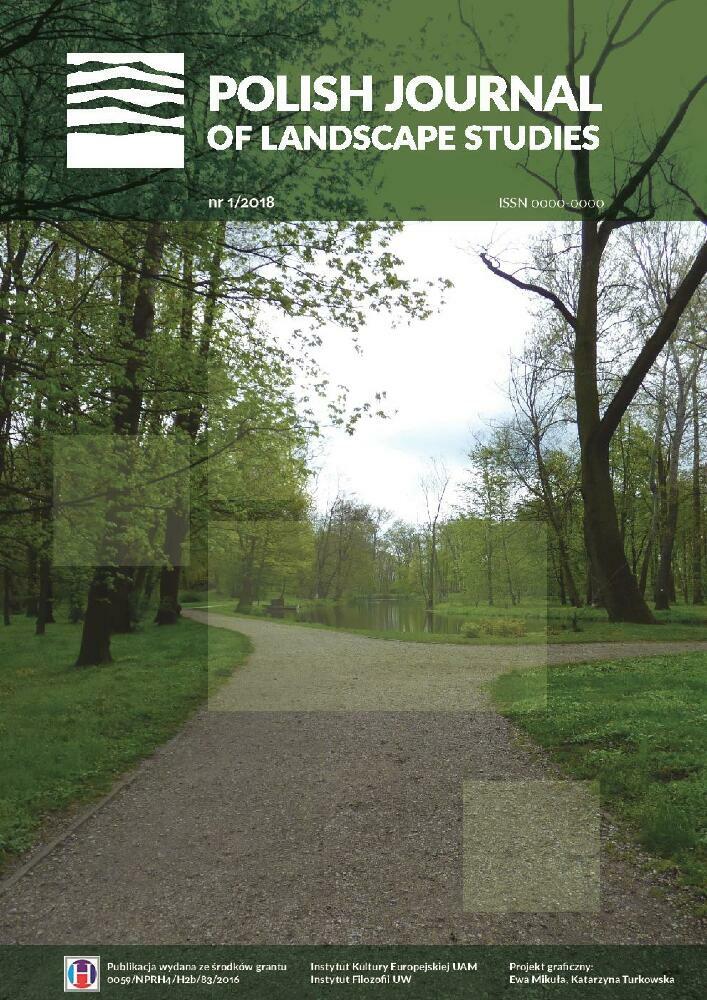Abstrakt
-Bibliografia
Angutek, Dorota. 2010. “Kanadyjska antropologia zmysłów—alternatywa wobec postmodernizmu.” [“Canadian Anthropology of the Senses—an Alternative to Postmodernism] Lud 94: 221-242.
Angutek, Dorota. 2013. “Epistemologiczne problemy badań interdyscyplinarnych” [“Epistemological Problems of Interdisciplinary Research”]. Studia Europaea Gnesnensia 8: 131-158.
Angutek, Dorota. 2013a. Kulturowe wymiary krajobrazu. Antropologiczne studium recepcji krajobrazu na prowincji: od teorii do empirii [Cultural Dimensions of Landscape. An anthropological study on landscape in the provinces: from theory to empirical data]. Poznań: Bogucki Wydawnictwo Naukowe.
Arendt, Hannah. 1998. Kondycja ludzka, trans. by Anna Łagodzka. Warszawa: Aletheia [English original: Arendt, Hannah. 1998. The Human Condition. Chicago: University of Chicago Press].
Bateson, Gregory. 1972. “Effects of Conscious Purpose on Human Adaptation.” In Gregory Bateson, Steps to Ecology of Mind Collected Essays in Anthropology, Psychiatry, Evolution and Epistemology, 313-318. Northvale-London: Jason Aronson Inc.
Burszta, Wojciech J. 1987. “Kultura jawna/kultura ukryta” [“Explicit Culture/Implicit Culture”.] In Słownik etnologiczny. Terminy ogólne, ed. by Zofia Staszczak, 194-195. Warszawa-Poznań: PWN.
Carr, Nicholas. 2010. Płytki umysł. Jak Internet wpływa na nasz mózg, transl. by Katarzyna Rojek. Gliwice: Hellion S.A. [English original: Carr, Nicholas. 2010. The Shallows: How the Internet is Changing the Way we Think, Read and Remember. London: Atlantic Books].
Damasio, Antonio R. 1999. The Feeling of What Happens. New York: Harcourt Brace & Company.
Damasio, Antonio R. 2010. Self Comes to Mind: Constructing the Conscious Brain. New York: Pantheon.
Gibson, James J. 1979. The Ecological Approach to Visual Perception. Boston: Houghton Mifflin.
Janion, Maria. 1994. Kuźnia Natury [The Forge of Nature]. Gdańsk: Słowo/Obraz Terytoria.
Kmita, Jerzy. 1985. Kultura i poznanie [Culture and Knowledge]. Warszawa: PWN.
LeDoux, Joseph. 1996. The Emotional Brain. New York: Simon &Schuster.
Macnaghten, Phil, Urry, John. 1998. Contested Natures. Thousand Oaks and New Delhi: Sage Publications of London.
Pałubicka, Anna. 2010. “Kulturoznawstwo jako dyscyplina zintegrowana” [“Cultural Studies as an Integrated Discipline”]. In Kulturo-znawstawo. Dyscyplina bez dyscypliny?, ed. by Wojciech J. Burszta and Michał Januszkiewicz, 35-50. Warszawa: Wydawnictwo SWPS Academica.
Pałubicka, Anna. 2013. Gramatyka kultury europejskiej [Grammar of European Culture]. Bydgoszcz: Oficyna Wydawnicza Epigram.
Przegalińska, Aleksandra K. 2013. Fenomenologia istot wirtualnych [Phenomenology of Virtual Entities] Doctoral dissertation. Accessed on July 2, 2015.
Turner, Victor W., Bruner, Edward M., eds. 1986. The Anthropology of Experience Illinois: Board of Trustees of the University of Illinois.
Varela, Francisco J., Rosch, Eleanor, and Thompson, Evan. 1991. The Embodied Mind: Cognitive Science and Human Experience. Cambridge: The MIT Press.
Zeidler-Janiszewska, Anna. 2010. “Granice współczesności granicami ‘znawstwa’? Kilka uwag o miejscach skrzyżowania badań kulturoznawczych z badaniami historyków” [“The Limits of the Contemporary as the Limits of ‘Expertise’? A Few Remarks at the Intersection of Cultural studies and Historical Research”]. In: Kulturo-znawstwo. Dyscyplina bez dyscypliny?, ed. by Wojciech J. Burszta and Michał Januszkiewicz, 22-34, Warszawa: Wydawnictwo SWPS Academica.
Znaniecki, Florian. 1988. Wstęp do socjologii [Introduction to Sociology]. Warszawa: PWN.

